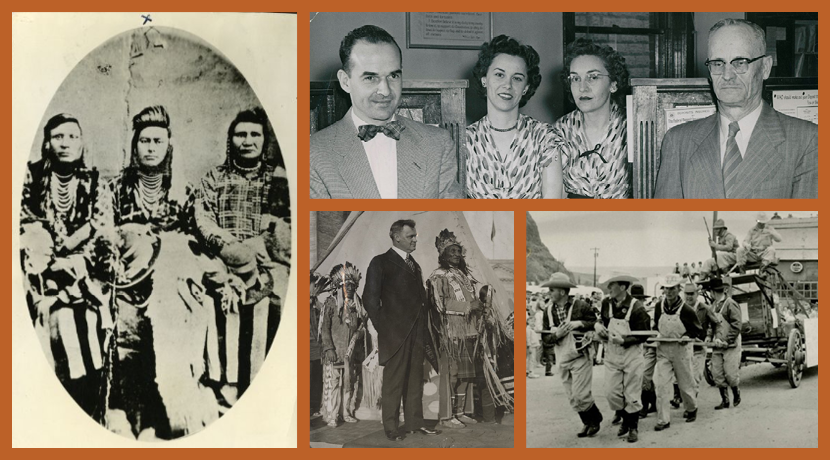
WASHINGTON DIGITAL HERITAGE GRANT RECIPIENT PROJECTS HELP DOCUMENT AND SHARE WASHINGTON HISTORY
Each year, Washington State Library awards grants to libraries across the state for digital projects that document and share Washington’s rich and unique history. The 2021-2022 Washington Digital Heritage Grant awardees recently wrapped up their projects. This year’s grants encompassed a wide range of topics and mediums, from Nez Perce stories and legends to the Grand Coulee Dam. Grant recipients scanned images, created thesauri, recorded interviews, and much more.
Read on to learn more about the awardees’ recently completed projects.
Asotin County Library
Asotin County Library digitized materials from the 1958 to 1966 Asotin County Fair and Rodeo, building on its 2020 project for which the library digitized fair materials from 1939 to 1957. In partnership with the Asotin County Fair Board, the library digitized and cataloged two scrapbooks of clippings, photographs, and documents. The records both document the fair as it took place through newspaper clippings and photographs of the annual parade and fair royalty, and show the planning undertaken by the Asotin County Fair Board to put on the event.
These materials can be viewed as part of the Asotin County Library’s collections on Washington Rural Heritage.
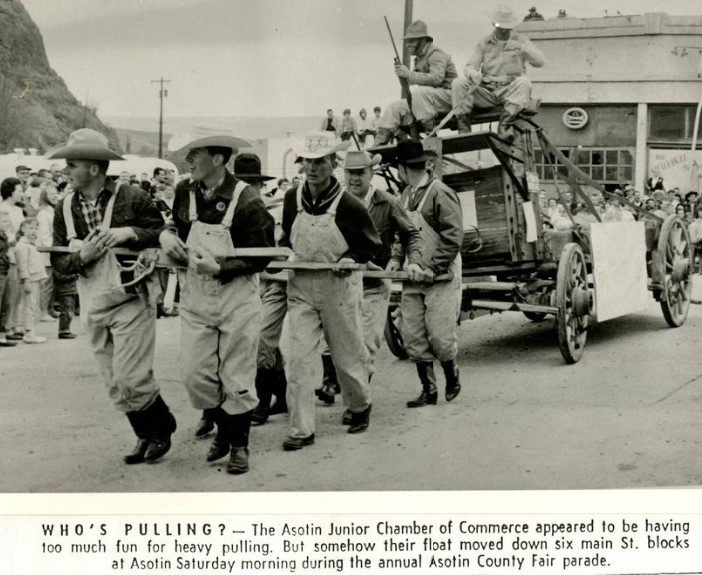
Central Washington University (CWU)
Central Washington University digitized the H. Glenn Hogue Photographic Negatives Collection — 1,000 photographic negatives from the 1930s to the 1960s documenting the history of Washington State Normal School and Central Washington College of Education (now CWU), Ellensburg, and the greater region. Hogue took the photos during his time as an instructor at the Normal School.
View the collection on ScholarWorks.
Gonzaga University
Gonzaga University digitized 415 items (1,569 pages) selected from the James O’Sullivan Collection. These materials cover O’Sullivan’s efforts to promote the construction of the Grand Coulee Dam from the 1920s to 1940s, including photographs of the pre-dam Columbia Basin, a photo album compiled by Alice B. Starkey documenting the construction of the dam, and the 1933-1935 minutes of the Columbia Basin Commission, early planners for the dam.
The digitized images are available at the Gonzaga University Digital Archives.
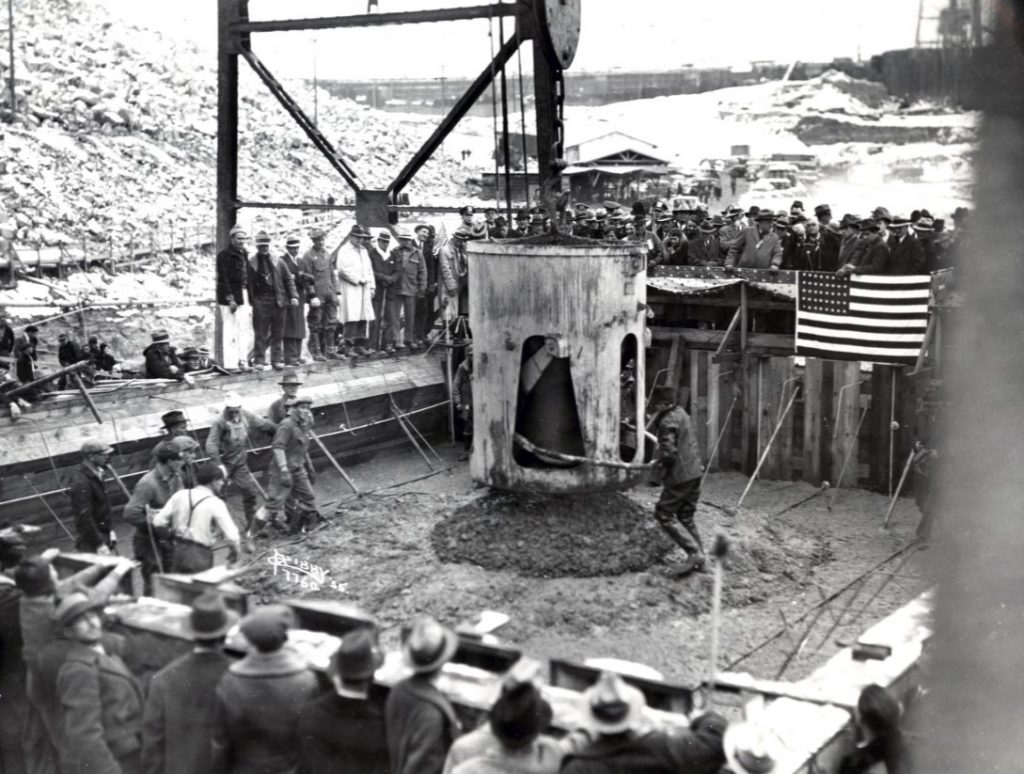
Jamestown S’Klallam Tribe
The Jamestown S’Klallam Tribe launched a cleanup project for its House of Seven Generations online archives and museum, updating metadata (including personal names), removing duplicates, cross-referencing online records with the tribe’s collections database, adding 482 previously digitized items that had not already been included, and creating landing pages for eight collections — all while packing up the library for renovations.
Post-grant plans include adding an access point to the House of Seven Generations website in a new library exhibit expected to open in fall 2023 once the renovations are complete.
The Seattle Public Library
The Seattle Public Library collected metadata and digitized over 800 photographs from the Northwest Photograph Collection documenting the region, including Native peoples and settlers from early in the white settlement of Washington and the Pacific Northwest. The newly digitized images feature the 1949 Lummi Stommish Water Festival, Gov. Ernest Lister, the McNeil Island Penitentiary, Mt. Baker Lodge, and a selection of real photo postcards.
Learn more about the newly added items at The Seattle Public Library’s Shelf Talk Blog and view all the digitized images from the Northwest Photograph Collection.
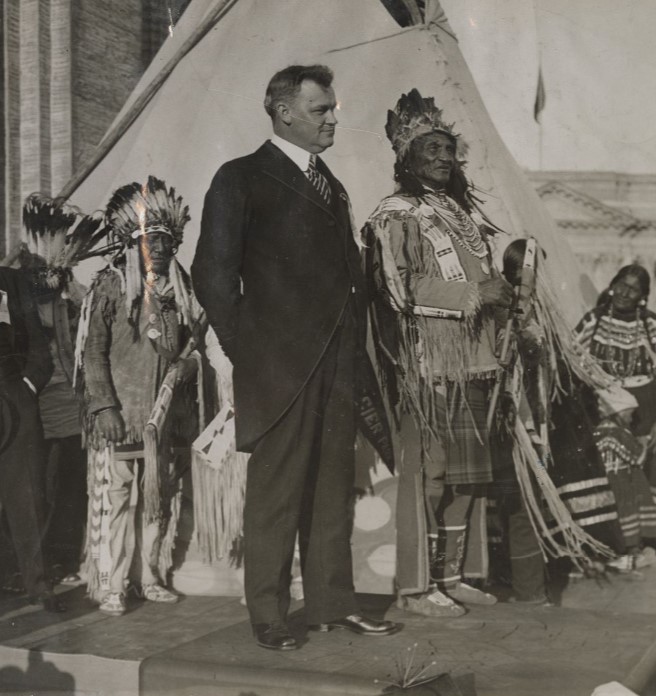
Suquamish Tribe
The Suquamish Museum updated metadata to add subject headings and increase searchability for nearly 3,000 photographs and documents in its PastPerfect database. The museum also scanned an additional 2,200 slides, 381 photographs, and 270 negatives documenting the history of the Suquamish Tribe and added them to PastPerfect.
This project helps the museum better serve its community by enabling them both to share more of the collections electronically and to easily locate materials in their collections for researchers.
Whitman College and Northwest Archives
Whitman College and Northwest Archives used their grant funds to expand their support of The Listeners Project: Queremos Escucharte, a collaborative, bilingual community-interviewing and story-collecting project documenting the Latinx and Spanish-speaking population in Walla Walla.
Whitman College partnered with the Colectivo de Arte Social (Socially Engaged Art Collective) of the Walla Walla Immigrant Rights Coalition and the Walla Walla Public Library to conduct approximately 40 one-on-one recorded interviews. Select interviews were then translated from English to Spanish, and/or Spanish to English. A selection of interviews are available online through Whitman College, Penrose Library’s digital repository, ARMINDA.
Additionally, the project team conducted two programs: a walking tour featuring excerpts from interviews titled Poner los Pies en la Tierra: Two Steps Beyond; and a documentary film screening about migrant workers in the Walla Walla Valley and discussion with filmmaker Salma Anguiana.
Whitman County Library
The Whitman County Library hosted scanning events in Colfax and other branch libraries countywide to encourage the public to share family collections documenting their history in Whitman County and their stories as pioneers, farmers, and merchants. Photographs digitized at the scanning events offer glimpses of family members and local communities, documenting weddings, parades, construction projects, farm shows, school plays, football games, and more. The newly digitized materials were added to Whitman County Library’s collections on Washington Rural Heritage.
At the end of the project, Whitman County Library created an exhibit showcasing some of the contributions and hosted an event for the contributing families to view the exhibit.
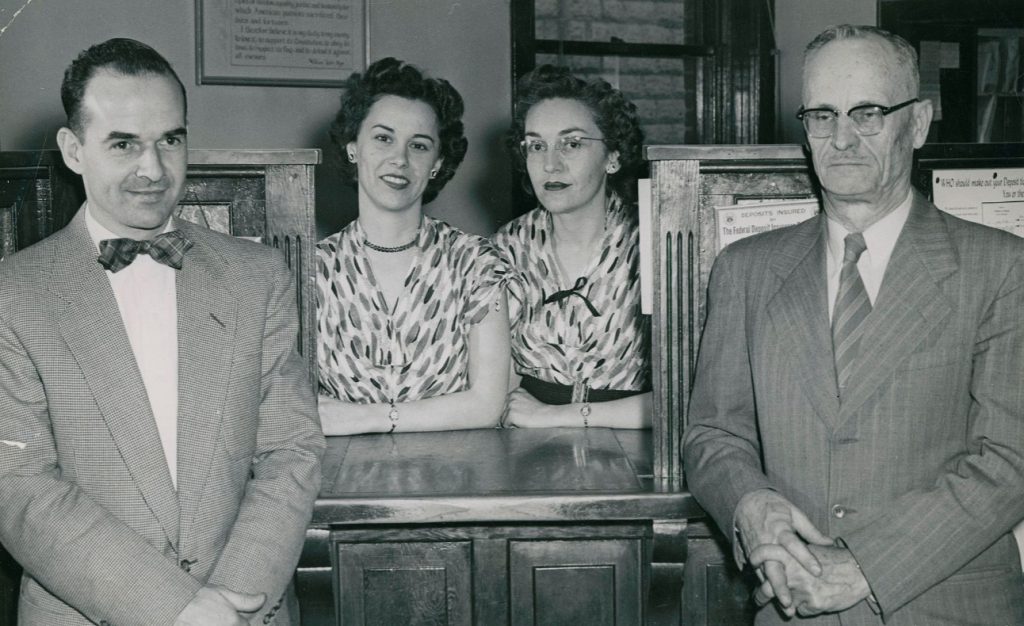
Washington State University (WSU)
WSU collaborated with the Nez Perce Tribe’s Department of Cultural Resources to select, digitize, and provide tribal knowledge, including recorded cultural narratives, for 344 photographs and documents from the Lucullus V. McWhorter Collection. This collection — which McWhorter began to compile in the early 20th century when he assisted the Yakama Nation in its fight to prevent diversion of water from its reservation — includes a wealth of unique information on the Plateau Tribes of central and eastern Washington. WSU also added 63 professional photographs of Nez Perce artifacts and updated the metadata for 239 previously digitized items, including adding Nimiipuu/Nez Perce terms to the title and description fields.
View the materials from this project on WSU Libraries Digital Collections and the Plateau Peoples’ Web Portal.
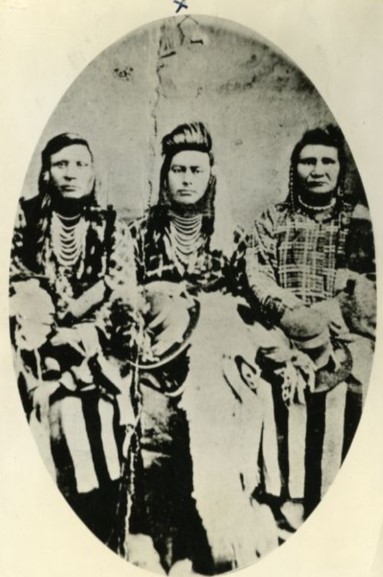
With this round of Washington Digital Heritage Grants wrapped up, a new round has begun. The 2022-2023 awardees include the Island County Historical Society, Jefferson County Historical Society, Pilchuck Glass School, The Seattle Public Library, Whitman County Library, and Washington State University.